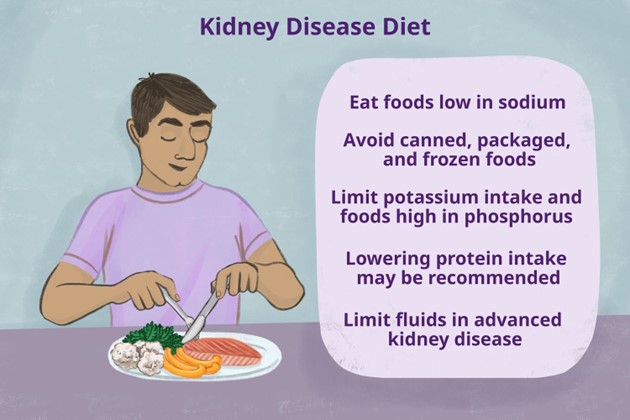A nurse is planning a class for parents of school-age children about iron intake. Which of the following should the nurse include as a manifestation of iron deficiency?
Lowered intellectual performance
Elevated temperature
Decreased sleeping time
Increased risk of infection
The Correct Answer is A
Iron deficiency can have various manifestations, but one of the significant effects is its impact on cognitive function. Iron is essential for the proper functioning of the brain and nervous system. In children, iron deficiency can lead to lowered intellectual performance, including difficulties with concentration, learning, memory, and problem-solving skills. It can also affect overall cognitive development and academic performance.
The other options listed are not typically associated with iron deficiency:
"Elevated temperature": Elevated temperature or fever is not a direct manifestation of iron deficiency. Fever is commonly associated with infections, inflammatory conditions, or other illnesses, but not specifically with iron deficiency.
"Decreased sleeping time": While iron deficiency can cause various symptoms, changes in sleep patterns, such as decreased sleeping time, are not a typical manifestation. Iron deficiency may cause fatigue and general weakness, which could potentially impact sleep quality and duration, but it is not directly associated with decreased sleeping time.
"Increased risk of infection": Iron deficiency can affect the immune system, making individuals more susceptible to infections. However, an increased risk of infection is a consequence of impaired immune function rather than a direct manifestation of iron deficiency itself.
Nursing Test Bank
Naxlex Comprehensive Predictor Exams
Related Questions
Correct Answer is C
Explanation
The nurse should include the instruction to "allow the toddler to feed himself" in the teaching. Allowing toddlers to self-feed promotes independence and helps develop their fine motor skills.
It also allows them to explore different textures and tastes of food, which can contribute to their overall development and acceptance of a variety of foods.
"Set meal times immediately after physical activity": It is not necessary to schedule meals immediately after physical activity. It is more important to focus on regular meal and snack times throughout the day to ensure the toddler's nutritional needs are met.
"Avoid snacks between meals": Snacks are an important part of a toddler's diet as they have small stomachs and may not be able to consume enough food during regular meal times.
Nutritious snacks can provide additional energy and nutrients to support their growth and development. However, it is important to choose healthy snacks and avoid excessive consumption of sugary or high-calorie snacks.
"Provide different food for the toddler than the parents": It is generally recommended to offer the same types of healthy foods to both the toddler and the rest of the family. This helps promote family meals and exposes the child to a variety of flavors and textures. However, the food may need to be prepared or served in a way that is suitable for the toddler's age and developmental stage (e.g., cut into small pieces or mashed).
Correct Answer is B
Explanation
Limiting protein intake is an important dietary modification for clients with chronic kidney disease. High protein intake can increase the workload on the kidneys and lead to further decline in kidney function. Restricting protein intake helps reduce the accumulation of waste products in the blood, such as urea and creatinine, which are normally eliminated by the kidneys. The specific amount of protein restriction will depend on the stage of CKD and the client's individual needs. It is important for the client to work with a registered dietitian who specializes in kidney disease to determine the appropriate protein intake.
Limit calcium intake: Calcium intake does not need to be limited unless there are specific complications related to calcium metabolism, such as hypercalcemia or certain types of kidney stones. Calcium is important for bone health, and adequate intake should be maintained unless otherwise directed by the healthcare provider.
Increase potassium intake: In most cases of chronic kidney disease, potassium intake needs to be limited. Damaged kidneys may have difficulty regulating potassium levels, and high levels of potassium in the blood can be dangerous. The client should be instructed to limit potassium intake and avoid high-potassium foods, such as bananas, oranges, tomatoes, and potatoes, unless specifically advised otherwise by their healthcare provider.
Increase phosphorus intake: Phosphorus intake needs to be restricted in chronic kidney disease, especially in later stages. Elevated levels of phosphorus in the blood can lead to bone and cardiovascular complications. The client should be educated on foods that are high in phosphorus, such as dairy products, nuts, and cola drinks, and instructed to limit their intake

Whether you are a student looking to ace your exams or a practicing nurse seeking to enhance your expertise , our nursing education contents will empower you with the confidence and competence to make a difference in the lives of patients and become a respected leader in the healthcare field.
Visit Naxlex, invest in your future and unlock endless possibilities with our unparalleled nursing education contents today
Report Wrong Answer on the Current Question
Do you disagree with the answer? If yes, what is your expected answer? Explain.
Kindly be descriptive with the issue you are facing.
